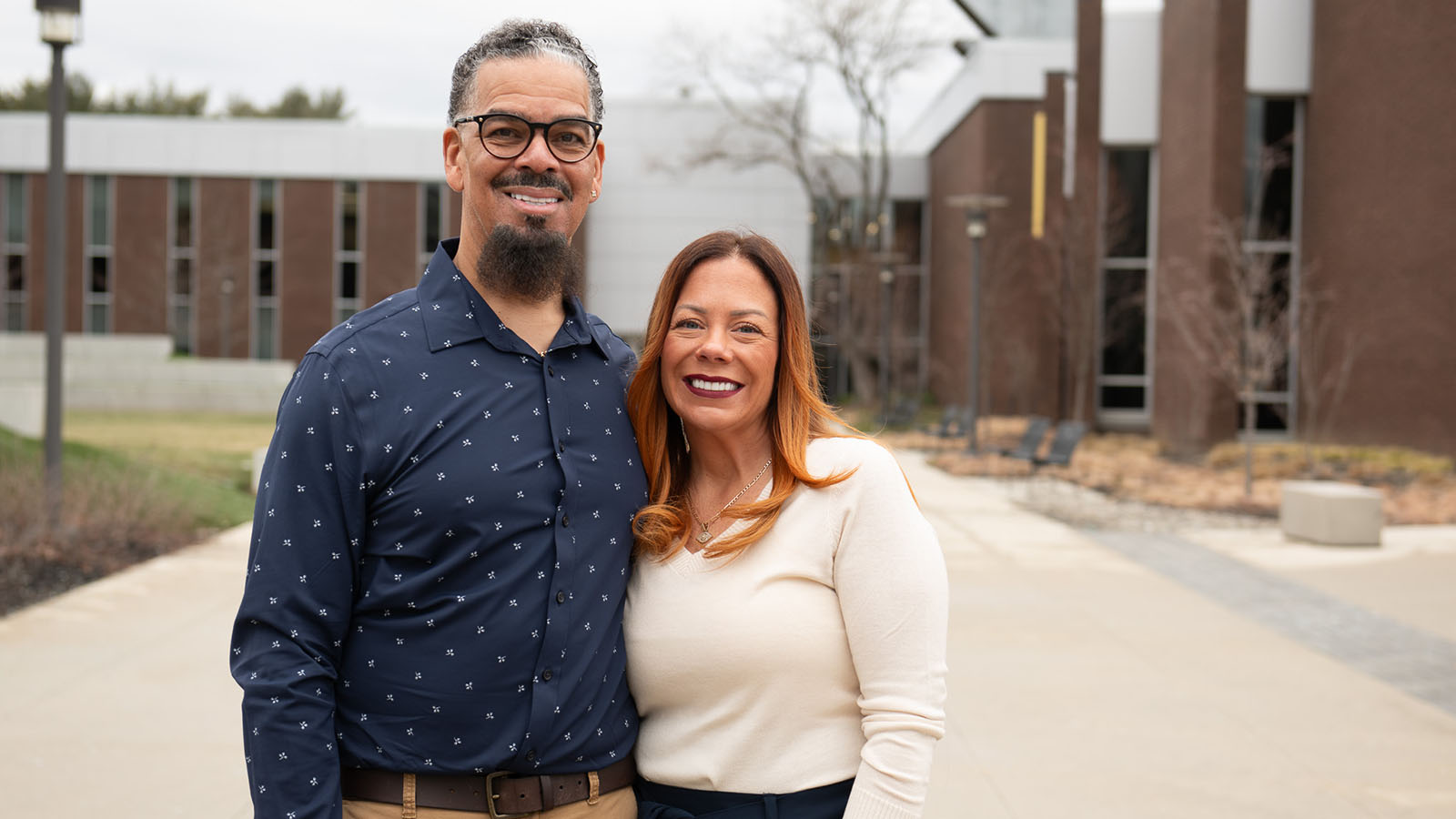Keep Your Heart Rhythm in Check With Your Smartwatch
Smartwatches started out as a great way to track your exercise. Now, they can help monitor your heart health. Virtua cardiologist Aatish Garg, MD, explains how.
By Aatish Garg, MD, Cardiologist—Virtua Heart Rhythm Specialists
Smartwatches started out as a great way to track your exercise, check messages and news alerts without taking out your phone, and read email. Now, these devices can help track your heart health.
The latest smartwatches are equipped to monitor your heart with an electrocardiogram, or EKG. Commonly used in health care provider’s offices and hospitals, EKG machines produce graphical representations of the heart’s electrical activity.
An EKG oftenis used for the following:
- To determine if you have an arrhythmia
- To see if your heart is beating too quickly or too slowly
- To determine if blocked arteries are causing chest pain or a heart attack.
That's why detecting an abnormal rhythm through a smartwatch could be lifesaving.
How an EKG provides clues for diagnosis
Using a traditional office-based EKG, 12 electrodes are placed on your chest, arms and legs to detect and analyze your heart's electrical signals. Smartwatches utilize light sensors to record the electrical activity of the heart transmitted to your skin.
The watch can detect and notify you of a low, high, or irregular heart rhythm that can be a sign of atrial fibrillation (AFib) or other heart conditions. Studies have found smartwatch EKGs to be fairly accurate, with the Apple Watch, for example, correctly identifying an irregular heartbeat 84% of the time.
However, it’s important to wear the watch properly. If it’s too tight or too loose, it can give an incorrect reading.
Trust a doctor for a diagnosis
Remember, a watch can’t diagnose you with AFib or any other condition. You need to see a health care provider for that. If the watch’s EKG picks up a potentially abnormal rhythm, a cardiologist will have you wear a Holter monitor to record your heart's electrical activity to confirm the diagnosis and form a treatment plan.
But, don’t just focus on what the watch says—take note of what you’re feeling. Does it feel like your heart is racing? Are you lightheaded or dizzy? Do you have chest pain or shortness of breath? If the answer is yes, call 911.
Restore your heart rhythm
Virtua heart rhythm specialists offer the latest diagnostic and therapeutic interventions to treat your abnormal heart rhythm. Call 888-847-8823 to schedule a consultation.
There's So Much More to Explore
Discover expert insights, inspiring stories, health tips, and more by exploring the content below!

HeartTalk Magazine
Inside Look at Blood Vessels Aids PAD Treatment
Denise Davis: Pay Attention to Your Heart Health

Sweet Music: Trust, Teamwork Save Justin from Heart Attack

Complex Heart Surgery Nets James a Lifelong Friend

8 Key Steps to Better Blood Pressure Control
Signs You Should Get Treated For Vein Problems

One New Heart Valve Saves Two Lives in the Tritten Family
What You Need to Know About Heart Failure

6 Numbers Key to Keeping Your Heart Healthy

Five Mindfulness Tips That Can Help Heal Your Heart

Watchman Heart Device: a Technological Breakthrough for Blood Clot Prevention

Albert's Emergency Cardiac Surgery Is a 'Story of a Lifetime'

Love Your Heart: Essential Care Tips for Every Stage of Life

How Do I Measure My Blood Pressure at Home?

How Do I Improve My Cholesterol Levels?

3 Ways to Reduce Your Stroke Risk

How the Unique Stages of a Womans Heart Affect Her Health

Can Your Gut Health Affect Your Heart?
Advanced Heart Failure Therapies Get Bernadine Back to Full Speed

Keeping the Beat: Advanced Heart Surgery for Aortic Aneurysm

Heart-Healthy Summer Recipe: Hummus and Veggies

4 Delicious Heart-Healthy Recipes Perfect for Summer

Heart Healthy Summer Recipe: Dessert Parfait

Heart-Healthy Summer Recipe: Pear and Walnut Salad

Heart-Healthy Summer Recipe: Terrific Turkey Burgers
Atrial Fibrillation and Stroke: What's the Connection?
Heart Tests Your Doctor May Order
Managing Pregnancy for Mothers With Heart Conditions

Heart Healthy Recipe: Basil Pesto Pasta With Seared Vegetables

Heart Healthy Recipe Chocolate Avocado Chia Pudding
Keep Your Heart Rhythm in Check With Your Smartwatch
Mind Your Meds for Blood Pressure Risks
Magic Pill for Heart Health? Cut 300 Calories a Day
3 Smart Ways to Boost Your Heart Health
3 Best Exercises For Heart Health

Get Your Heart Pumping With These 25 Workout Songs
Your Chest Pain: Heartburn, Heart Attack, or Something Else?
3 Heart Healthy Recipes to Win Valentines Day
How Work and Home Stress Can Affect You
Why Improving Your Health Is Going To The Dogs And Cats
Why Younger Women Need Start NOW To Safeguard Their Hearts From Heart Attacks
Can You Die of a Broken Heart?
Get to the Bottom of Blood Pressure Numbers
Mitral Valve Surgery Opens Doors for Improved Quality of Life
6 Healthy Habits to Start in Your 20s for Better Lifelong Health
Do You Have a Fatty Heart?
Get Pumped! Assist Devices Can Improve Heart Failure Symptoms
A Cardiologists Advice on Heart-saving Emergency Cardiac Care
Virtua Doctor’s Experience Is a Warning for All About COVID-19 and Strokes
You May Feel Fine, but Gregory Says "Don't Skip Your Medical Care"
In Sickness and in Health: Couples Often Share Heart Disease Risk
"Reduce Your Heart Disease Risk With a Plant-based Diet"
Hybrid Robotic Heart Surgery and Valve Replacement Restores Quality of Life
Can Marijuana Hurt Your Heart Health?
6 Tips for Restoring Your Heart Rhythm
Eat Smart for Your Heart
Cardiac Rehab: Strengthening Your Heart After Leaving the Hospital
Your Heart Needs A Good Nights Sleep
Are You at Risk for AAA—the Silent Killer?
The Cardio Oncology Team Protects Your Heart During Cancer Treatment
Get Relief From Painful Varicose Veins This Summer
Exercise Your Way to a Stronger Heart
Fish Oil: A Good Catch or a Scam?
My Heart Seems to Skip a Beat - Should I Be Worried?
Menu Planning? Try These 5 Heart-smart Substitutions

5 Health Risks Tied to Weight

Heart-Healthy Recipe: Maple Orange Salmon With Mango Salsa
Do Not Wait to Get Help When a Stroke or Heart Attack Strikes
4 Reasons Why Heart Patients Should Follow COVID 19 Safety Guidelines

